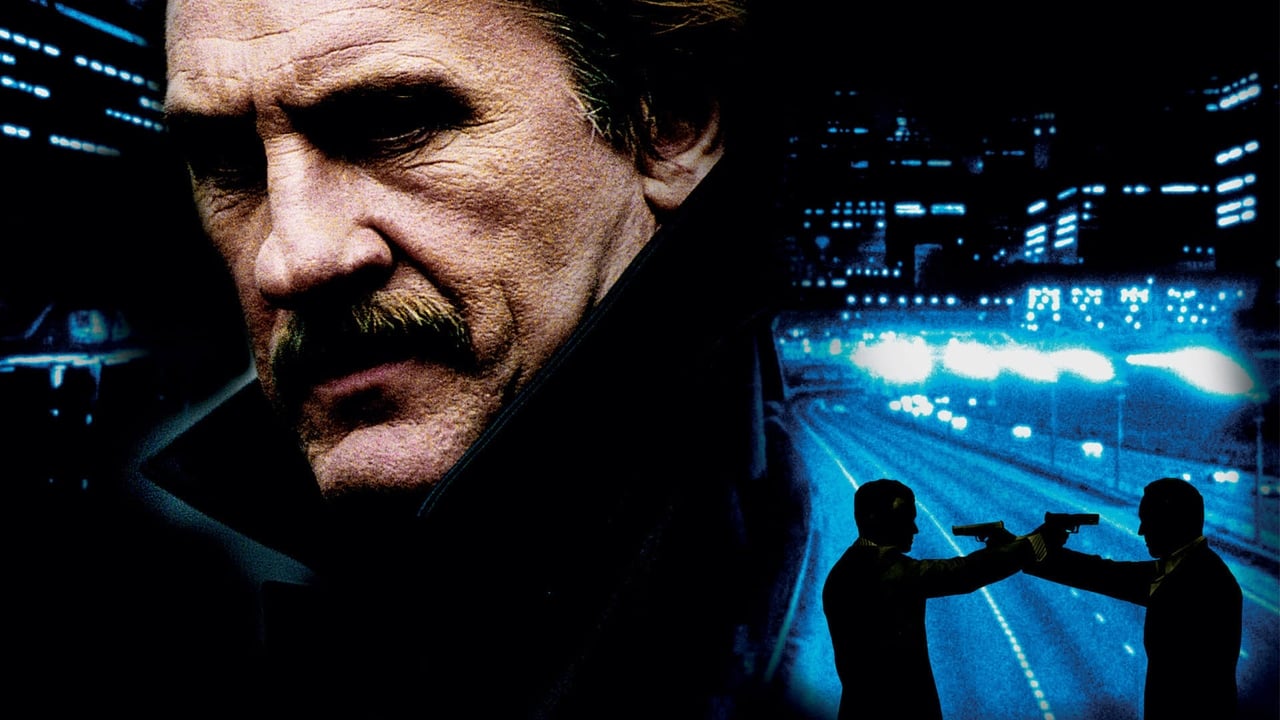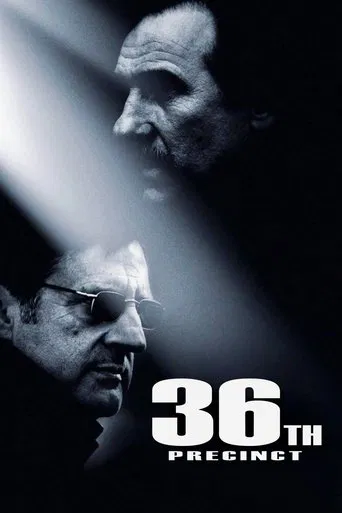

Of course, no one has noticed that this story is freely inspired by actual events that occurred in Paris in january 1986. Two elite police squads, Brigade de Recherche de d'Intervention, and Brigade de Répression du Bandistisme, were so rivals that they fired at each other when they were just about to nail a gang of bank robbers: The Disguised Gang. A group of hoodlums who pulled heists in broad daylight, cracking safe deposit boxes, whilst they used fire arms in the same time to attack the bank vaults. So it was armed and cracking heists in the same time. So, back to Olivier Marchal's masterpiece, Daniel Auteuil and Gérard Depardieu's characters are very close to those real life policemen involved in this 1986 Paris killing, when one gangster and a cop died. Just because of the two police squads rivalry.
... View MoreSometimes you right from the start of watching a movie, you are sucked into the whole thing. I had that experience here.The film starts off with style, great camera work and intriguing music, perfectly fitted to the setting. It starts with sentimental music, a scream in a prison, a guy crying in his prison bed. Then we are introduced to the cast and the title. The sentimental music fades into another exciting sentimental song, but with clear rhythm, while two guys steals a street sign, only just escaping being caught by the strolling police.After change of scene we follow two gangsters going into a bar, and start up beating the presumed owner. We switch to a large goodbye party with high party pitch. It's special forces, obviously not following the straight book, shooting up the bar. Then we switch between this party out of bonds and the extremely violent robbing of a security van. All beautifully filmed, while the music ponders.Daniel Auteuil and Gerard Depardieu are the two male leads which are rivals for the position of Chief of Police in Paris. Depardieu and Auteuil does a magnificent job. So does the whole crew. But so does Auteuil as the "good guy" and Golino as his wife. What does this film is the combination of good acting and a smart script, combined with a good pace and great technical work. Everything A-class!I'm hooked. And stay so for the rest of the movie. I love it when it's a story told like this. The telling of the story is just as important as what the story is about. Brilliant! Realistically told, and Olivier Marchal, the writer a d director is a former member of the Parisian police force. I suddenly realize that I've seen one of his other films, "Tell no one" based upon Harlan Cobens novel. I absolutely loved that one, also giving an 8 out of 10, and though I see these two are rated his best, I'll be sure to check out more from his hands. What a talented film maker!It's action filled, have interesting twists and turns, and is simply a will told story with great acting all over. I like the way camera is held, and I love the storytelling where scenes go into each other. Sometimes the dialog continues into the next scene, sometimes the next scene conversation starts before the next scene is emerging.I love the use of classic cars in films like it's done also here, but I really hate it when they are trashing them. I would sincerely ask film makers to stay away from classics when they mean to use the cars in collisions and shoot outs.What a great police thriller! One of the best in the genre I've ever seen. I would even say it's one of the top five most exciting French films I've ever seen, far away from Luc Besson's exaggerated stuff. Only "Leon" is in class with this! Recommended, strongly!
... View MoreIt appears almost obligatory for a film such as 2004 French thriller, simply entitled by that of a number in "36", to be compared to Michael Mann's 1995 opus Heat; such comparisons seem synonymous with said film whenever a fresh feature of its ilk exploring the dynamics between friends and foes all existing and pot-boiling with one another within the same pan on the same hob comes along. Olivier Marchal's film, working from a screenplay he contributed to, is at once a fine police procedural movie but additionally a well played out crime drama and family ties serial which broods and comes together really nicely. The films are close to all-but stylistically similar, 36's poster greets us with that metallic blue hue rife within certain Heat sequences as two big-shot actors playing up to their off-screen persona's appear to be about to head into a one-on-one duel of some kind; projects in which they have both worked together resonating at the back of our minds as we head in ourselves.In the stylistic department, our lead actor, Daniel Auteuil, repeatedly cuts rather-a dash as a younger Pacino from around the mid-90s. Like Pacino's Heat character, he operates now and then with his criminally minded underworld contacts, whilst there is the sequence in which he must illustrate to his wife the dangers and difficulties of bringing his work life and work ethic into that of the domestic set up - somewhat reminiscent of a similar Pacino driven scene in said film. Both film's additionally see a dramatic, early armoured van heist act as the catalysts for the respective films. 36 is probably without the thematic substance which ran throughout Heat, of which pertained to the two male leads; here, Auteuil's police officer Léo Vrinks and Gérard Depardieu's police officer of similar rank Denis Klein sharing dissimilar relations in that there is certainly no love lost nor sense of mutual respect that the two men share in their respective lives or lifestyles. This doesn't detract from the film in any way, in fact Marchal's utilising of Mann's film as a source point before going down differing routes is to be constructively acknowledged.Crucially, the film paints a portrait of these men at odds with one another as numerous sub-plots and events occurring around them unfold and contribute in their own precise way to the plights of each man. In Vrinks, we have a police officer with connections of that the criminal underworld which goes against standard regulation, and yet is arguably one of the more upstanding characters in the film. When he exacts some agonising payback on a man in a secluded wooden area, whom is guilty of putting a local prostitute through a fair ordeal, we come to realise of his methods and that such activity has an overbearing sense of it being induced by gangsters, or is the sort of reaction gangsters might follow through with themselves. In Klein, the film provides us with an initially staunch and firmly straight-laced cop whom sticks to the straight and narrow in that sense but is a boozing, aggressive, self-centred man with a big build and out for an item as illegitimate as revenge.We begin in the present before flashing back to the events which lead up to Vrinks lying disgruntled and upset on a prison bed; the props and items in his cell suggesting the respect the man carries, that he is permitted such things or that there is a leniency inferred onto him hinting at minor offences or just sheer pity. When we flash back, we see Vrinks enjoying healthy company at a restaurant's bar with other police officers, during which one has his masculinity mocked for attempting to recite some poetry during this, a send off for a retiring official, establishing a certain bravado or macho set of characteristics for the police officers of Vrinks' department. The outgoing is the superintendent, his verbal establishing that his post is now there for the taking for somebody coming through such as Vrinks or Klein a proverbial prize looming at the end for what transpires; his additional confirmation that his desire to catch a gang of robbers whom we saw pillage that armoured van is strong, and sees him get-across a certain urgency to get this done so as to form a sort of swan-song.The item which drags both Klein and Vrinks together is in the form of a murdered informant Klein was rather fond of, a crime perpetrated by a Vrinks contact whom made sure Auteuil's cop was there to witness it; the fallout causing an immensely enjoyable power struggle within the confines of the police force as numerous supporting characters, such as wives and so forth, cause particularly harrowing events to entwine spawning all manner of strife.Essentially what 36 deals with, or at least feeds off of in order to induce dramatic effect, is that of corrupt police officials; an issue rife within a lot of contemporary French thrillers of both this ilk and of varying others, usually ordained by films from the factory of Luc Besson. Marchal's film is not another scuzzy excuse to exploit sensitive issues surrounding that of the problems France clearly has with political or authoritarian figures for sake of cheap, action imbued frills. Where Besson's writer/producer accredited films carry with them a belittling sense of introducing without really exploring, 36 encompasses police corruption as a subject apart of the film's process; symptomatically deconstructing those within and getting under the proverbial skin of such a caricature or authoritarian archetype whilst blending in genuine and authentic narrative elements in the process. The film is not the cynical, half-hearted show on how corrupt and narrow-minded police officers are, but in fact is a richer and more scholarly character study which is rarely, if ever, uninteresting.
... View MoreI have seen comments of people comparing this iconic French cop thriller to Hollywood cop films and slating the latter. This is quite unfair, we all know you don't compare apples and pears. I thoroughly enjoyed the performances by some of France's best actors in this very noir script. The storyline is well put together and although you might think there is a good cop bad cop feel about it, you are left wondering if it is that clear cut. Although a cop thriller there is not overdose on action, just enough to support the feel of reality you get. The mix is perfect as far as I'm concerned. There is action, politics, family relationships, character development, interpersonal shifts etc... If you haven't seen it please do. Just let the film be what it is and you will not be disappointed. Oh, and if you can watch it in French with subtitles. Otherwise you will loose out.
... View More